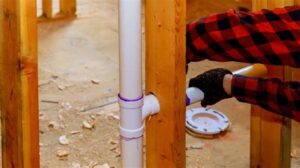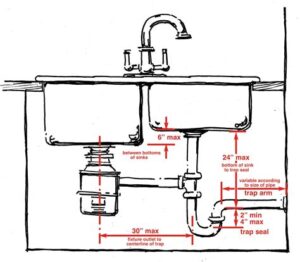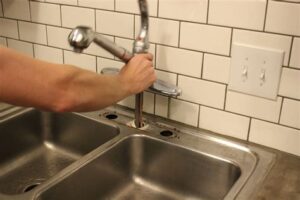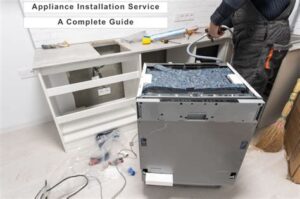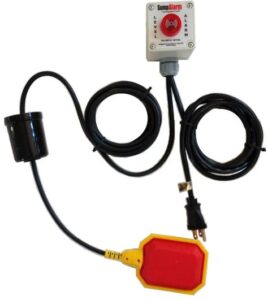Explore the essential role of a Plumbing Heating Installation Manager, detailing responsibilities, key skills, challenges faced, and the importance of team coordination in plumbing projects.Welcome to an exclusive glimpse behind the curtain of an often-overlooked yet vital profession: the Plumbing Heating Installation Manager. As the unsung heroes of comfort and safety in our homes and businesses, these managers orchestrate every aspect of plumbing and heating installations, ensuring projects run smoothly from start to finish. In this article, we delve into the intricacies of their daily routine, exploring the numerous responsibilities they juggle, the essential skills they possess, and the challenges they face in a demanding industry. Whether you’re considering a career in plumbing management or simply curious about what goes on behind the scenes, our exploration promises to reveal the dynamic world of plumbing and heating installation management. Join us as we uncover the significance of teamwork and coordination in delivering top-notch service and excellence in every project.
Understanding The Role Of A Plumbing Heating Installation Manager
A Plumbing Heating Installation Manager plays a crucial role in ensuring that plumbing and heating projects are executed smoothly and efficiently. This position encompasses a variety of responsibilities, necessitating a blend of technical expertise, project management skills, and leadership abilities.
Primarily, the manager is responsible for overseeing the installation processes of plumbing and heating systems. This includes planning and coordinating workflows while ensuring compliance with safety regulations and building codes. They act as the point of contact between clients, contractors, and team members, which is essential for maintaining clear communication and addressing any issues that arise during installations.
One of the key aspects of this role is managing the team of technicians and plumbers. The manager must ensure that each team member is well-trained and equipped with the necessary resources to perform their tasks effectively. Regular training sessions and workshops may be organized to keep the team updated on the latest industry standards and technologies.
Additionally, the Plumbing Heating Installation Manager must be adept at problem-solving and decision-making. As unexpected challenges may occur, such as material shortages or scheduling conflicts, the ability to adapt and find solutions is vital. Their proactive approach contributes significantly to the overall success of plumbing projects.
Ultimately, the role requires a firm understanding of both plumbing and heating systems, as well as superb organizational skills. By effectively managing operations behind the scenes, a Plumbing Heating Installation Manager enables the completion of high-quality installations that meet client expectations.
Daily Responsibilities And Tasks Behind The Scenes
As a Plumbing Heating Installation Manager, the daily responsibilities are diverse and dynamic, requiring a balance of technical expertise and managerial skills. Here are some of the key tasks that take place behind the scenes:
- Project Planning: One of the first tasks each day involves reviewing current projects, assessing timelines, and ensuring that all resources are aligned for smooth execution.
- Team Meetings: Daily briefings with the installation team are crucial. These meetings facilitate communication regarding project goals, safety protocols, and addressing potential challenges that may arise on-site.
- Site Inspections: Conducting on-site inspections not only ensures compliance with building regulations but also allows for real-time problem-solving and quality assurance in heating and plumbing installations.
- Resource Management: Managing inventory, tools, and equipment is critical. This involves coordinating with suppliers to ensure that materials are available and ready for each day’s tasks.
- Client Communication: Maintaining open lines of communication with clients is essential. This includes providing updates on project progress and addressing any concerns or modifications requested by the client.
- Budget Monitoring: Keeping track of budget expenditures and managing costs is vital. This involves reviewing invoices, negotiating with vendors, and ensuring that projects remain within financial constraints.
- Training and Development: Participating in ongoing training sessions to stay up-to-date with the latest plumbing technologies and regulations is important. This ensures that both the manager and the installation team are knowledgeable about current practices.
- Documentation: Documenting all processes, changes, and communications throughout the installation process is a must. This not only provides a clear reference for future projects but also supports compliance with legal standards.
These daily responsibilities contribute significantly to the success and efficiency of plumbing heating installations, showcasing the essential managerial role behind the scenes.
Key Skills Required For Success In Plumbing Management
To thrive as a Plumbing Heating Installation Manager, there are several key skills that are imperative for success in the role. These skills not only enhance the effectiveness of day-to-day operations but also contribute to the overall success of plumbing projects. Here are some of the essential skills:
| Skill | Description |
|---|---|
| Technical Knowledge | A deep understanding of plumbing systems, codes, and regulations is crucial for effective management and ensuring compliance. |
| Leadership | Strong leadership skills are necessary to motivate and guide a team, ensuring that everyone is aligned with project goals. |
| Problem-Solving Skills | The ability to quickly address and resolve issues that arise during installations is vital for maintaining project timelines. |
| Communication | Effective communication with team members, clients, and suppliers is essential for smooth collaboration and project success. |
| Time Management | Managing schedules and deadlines ensures that projects are completed efficiently and within budget. |
| Financial Acumen | Understanding budgeting and cost control helps in managing resources effectively, minimizing waste, and maximizing profits. |
These skills, when combined, create a strong foundation that allows a Plumbing Heating Installation Manager to successfully navigate the complexities of plumbing projects and lead their teams effectively.
Challenges Faced Behind The Scenes In Plumbing Installations
Behind the scenes, a plumbing heating installation manager navigates numerous challenges that can significantly impact the overall success of a project. These obstacles demand not only technical knowledge but also exceptional problem-solving and leadership skills to ensure smooth operations.
One of the primary challenges is managing the logistics of material procurement. Sourcing high-quality materials at competitive prices is crucial, yet delays in delivery can set back project timelines. The installation manager must swiftly devise alternative solutions while keeping cost implications in mind.
Another challenge is dealing with unforeseen problems that arise during installation. Whether it’s discovering code violations, unexpected structural issues, or complications with existing systems, these hurdles can lead to costly changes and extended project durations. A responsive and adaptable approach is essential to mitigate the impacts of these challenges.
Moreover, communication plays a pivotal role in overcoming challenges. Coordinating with contractors, suppliers, and team members requires clear and consistent communication to avoid misunderstandings that can lead to errors or delays. A plumbing heating installation manager must establish effective communication channels to foster collaboration and transparency.
Additionally, regulatory compliance poses its own challenges. Keeping up with local building codes and safety regulations is vital, yet these requirements can evolve. The installation manager needs to stay informed and ensure that all procedures align with current standards, which may require ongoing education and training.
Lastly, managing the workforce presents its own set of difficulties. Scheduling, training, and retaining skilled labor can be daunting, especially in a competitive job market. Fostering a positive work environment and addressing team concerns are vital in ensuring that the workforce remains motivated and productive.
In summary, the challenges faced behind the scenes in plumbing installations are multifaceted. From logistics and communication to compliance and workforce management, effective strategies are indispensable for a plumbing heating installation manager to ensure successful project completion.
The Importance Of Team Coordination In Plumbing Projects
Team coordination is pivotal in plumbing projects, as it directly impacts efficiency, safety, and overall success. The role of a Plumbing Heating Installation Manager involves overseeing a variety of specialists, including plumbers, electricians, and HVAC technicians. Effective coordination among these team members ensures that tasks are completed on schedule and to the desired quality standards.
By fostering a collaborative work environment, a Plumbing Heating Installation Manager can maximize the strengths of individual team members, leading to improved problem-solving and innovation. Regular team meetings and open lines of communication are essential to maintaining clarity and ensuring that everyone is on the same page regarding project timelines and deliverables.
Moreover, successful coordination helps in mitigating potential conflicts and misunderstandings that can arise in complex plumbing systems. For instance, when different trades are involved, the need for schedule synchronization becomes crucial. A well-coordinated team minimizes the risk of delays and promotes a seamless workflow.
Here’s a brief overview of the benefits of effective team coordination in plumbing projects:
| Benefits | Description |
|---|---|
| Enhanced Communication | Open dialogue leads to quicker problem resolution and fewer errors. |
| Increased Efficiency | Streamlined processes reduce project time and labor costs. |
| Improved Safety | Coordinated teams can better identify potential hazards and address them proactively. |
| Higher Quality Output | Collaborative work results in meticulous attention to detail and superior craftsmanship. |
In summary, Behind The scenes of plumbing projects, effective team coordination not only enhances operational productivity but also contributes to client satisfaction and business reputation. A Plumbing Heating Installation Manager must prioritize this aspect to ensure that all installations are performed smoothly and professionally.
Frequently Asked Questions
What are the primary responsibilities of a plumbing heating installation manager?
The primary responsibilities include overseeing installation projects, managing staff, ensuring compliance with safety regulations, and maintaining communication with clients to ensure their needs are met.
What does a typical day look like for a plumbing heating installation manager?
A typical day involves reviewing project schedules, conducting site visits, coordinating with suppliers, resolving any issues that arise, and meeting with clients to discuss progress.
What qualifications are necessary to become a plumbing heating installation manager?
Qualifications often include a combination of relevant certifications, plumbing experience, managerial skills, and a strong understanding of heating systems.
What challenges do plumbing heating installation managers face?
Common challenges include managing unexpected delays in construction, meeting deadlines, ensuring high-quality workmanship, and addressing client concerns thoroughly.
How do plumbing heating installation managers ensure compliance with regulations?
They stay updated on local codes and regulations, conduct regular inspections, and ensure that all installations meet safety standards and quality checks.
What skills are essential for effective management in plumbing heating installations?
Essential skills include leadership, problem-solving, effective communication, time management, and a strong technical knowledge of plumbing and heating systems.
How important is customer service for a plumbing heating installation manager?
Customer service is vital as it builds trust, addresses client concerns, and ensures satisfaction, which can lead to repeat business and positive referrals.
